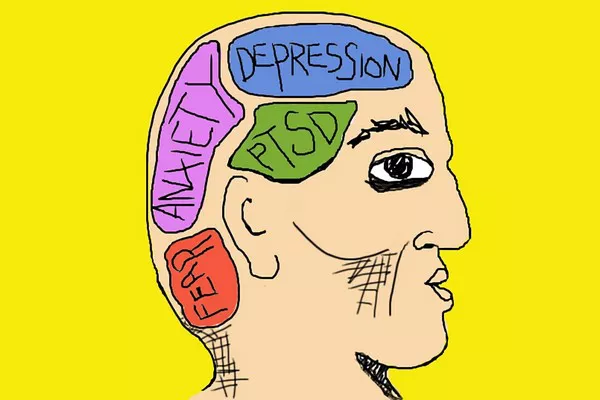A recent study published in Early Child Development and Care explores the growing concern about how screen time affects behavioral issues in preschool-aged children. The research investigates the impact of excessive screen use on sleep quality and how it contributes to issues such as hyperactivity and emotional disturbances in young children.
The Behavioral Effects of Screen Time
As screen time becomes increasingly prevalent in children’s daily routines, concerns are rising about its potential negative effects on mental health and behavior. Excessive exposure to electronic devices, such as smartphones, tablets, and televisions, has been linked to attention problems, emotional instability, and reduced social interactions. Research suggests that younger children may be especially vulnerable to these adverse effects, making it crucial to understand the relationship between screen time, sleep, and behavior.
In addition to behavioral concerns, sleep quality is known to be a critical factor for healthy cognitive and emotional development in young children. Poor sleep can disrupt brain function, heighten emotional instability, and exacerbate behavioral issues, with screen time often contributing to sleep disturbances.
Despite these associations, previous studies have yielded conflicting results regarding the precise role of screen time and its relationship with sleep and behavior. The current study aims to clarify these links by examining the effects of screen time on preschoolers’ behavior, specifically looking at the role sleep plays in this dynamic.
About the Study
The study surveyed 571 mothers of preschool-aged children in Shanghai, China, to investigate the effects of screen time on behavioral problems, with sleep quality acting as a potential mediator. The mothers were asked to complete questionnaires online, reporting on their children’s screen time, sleep habits, and behavioral issues.
Screen time was measured using the Home Digital Practices Survey, which asked mothers to document the average daily time their children spent on devices like TVs, smartphones, and tablets. A weighted average of screen time across weekdays and weekends was then calculated. Behavioral problems were assessed using the Strengths and Difficulties Questionnaire, which measures hyperactivity, emotional symptoms, and peer-related issues. Sleep quality was evaluated using the Children’s Sleep Habits Questionnaire, which considers aspects like bedtime routines, sleep readiness, duration, sleep anxiety, nocturnal awakenings, and daytime sleepiness.
Using descriptive statistics, correlation tests, and mediation analysis, the researchers explored the relationships between screen time, sleep quality, and behavioral problems in children. The mediation analysis specifically examined whether sleep quality mediated the link between screen time and behavioral issues.
Study Findings
The findings showed a significant association between increased screen time and behavioral problems, particularly hyperactivity and emotional symptoms, in preschool children. Sleep quality was found to play a partial mediating role in these relationships but did not mediate the link between screen time and peer-related issues.
In particular, higher screen time was directly linked to an increase in hyperactivity and emotional symptoms. Additionally, excessive screen time was shown to negatively affect sleep quality, which then contributed to worsened behavioral outcomes. The mediation analysis revealed that sleep quality accounted for 26.7% of the relationship between screen time and hyperactivity, with 25% of the association between emotional symptoms and screen time explained by poor sleep quality. Sleep disturbances emerged as a major pathway through which screen time negatively affected emotional regulation and attention control in children.
Interestingly, no significant relationship was found between screen time and peer-related problems. While poor sleep quality was associated with greater peer difficulties, screen time itself did not have a direct or mediated effect on children’s social interactions. This suggests that the impact of screen exposure on social behavior may depend on factors such as age and developmental stage.
Correlational Analysis
Correlational analyses supported the main findings, showing a negative correlation between screen time and sleep quality. Additionally, screen time was positively associated with hyperactivity and emotional symptoms. Gender differences were observed, with boys showing higher levels of hyperactivity and peer-related problems compared to girls. However, these differences were accounted for in the analysis, highlighting the broader impact of screen time on behavior regardless of gender.
Conclusions
This study concludes that excessive screen time contributes to hyperactivity and emotional symptoms in preschool-aged children, with sleep quality playing a partial mediating role in these outcomes. These findings underscore the importance of reducing screen exposure and improving sleep quality in young children to mitigate behavioral issues.
Given the results, future interventions should focus on educating parents about the risks of prolonged screen use and the importance of fostering healthy sleep habits. Such efforts are crucial for supporting the emotional and cognitive development of young children and ensuring their overall well-being.
You Might Be Interested In:
-
Penn Engineers’ Breakthrough in Preeclampsia Treatment: A Ray of Hope for Pregnant Women
-
$12.5 Million Study to Revolutionize Postpartum Blood Pressure Management
-
Cesarean Deliveries During Labor: Potential Risks for Future Pregnancies

